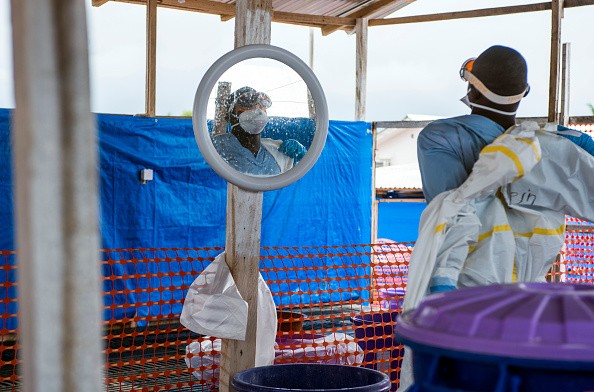New study findings show that Ebola virus can last in men's semen for at least nine months after its apparent disappearance, and can be passed on through body fluids.
Previously, survivors were advised to abstain from sex or use a condom for three months after recovery, but the virus is still present in people six months later, according to Independent.
Scientists wondered how the virus can stay in different parts of the body including survivor's organs, long after it has apparently left. This could be the case with Pauline Cafferkey, the Ebola nurse who is once again in a critical condition nearly a year after her initial recovery.
In the latest study, researchers discovered the virus in the semen of about two-thirds of participants after six months, and slightly more than a quarter after nine months. There is a high likelihood of a new outbreak if the Ebola virus is transmitted through sexual activity, long after an outbreak appears to be over.
In a report in the New England Journal of Medicine, the researchers said, "There are thousands of survivors of EVD (Ebola virus disease) in western Africa, and many are sexually active men. Sexual transmission of the Ebola virus could possibly result in new outbreaks several weeks or months after all known chains of transmission in the region have stopped."
The new discovery of Ebola virus being passed through semen is one of the biggest worries for medical professionals. Although there have been some precautions taken against the Ebola, experts indicate that the spread through sexual activities might be one way that the epidemic will make its way back.
There is a call from the researchers for establishment of more programs that provide testing and counseling to people to help combat the new way of spreading the virus.
"Such programmes would help men and women understand their individual risk and take appropriate measures to protect their sexual partners, specifically in regard to condom use and disposal, and could provide links to care and counselling programmes for survivors," the researchers explained.
There is a need for more research to establish whether the virus lives on for similar periods in other body fluids, including those of women.



























